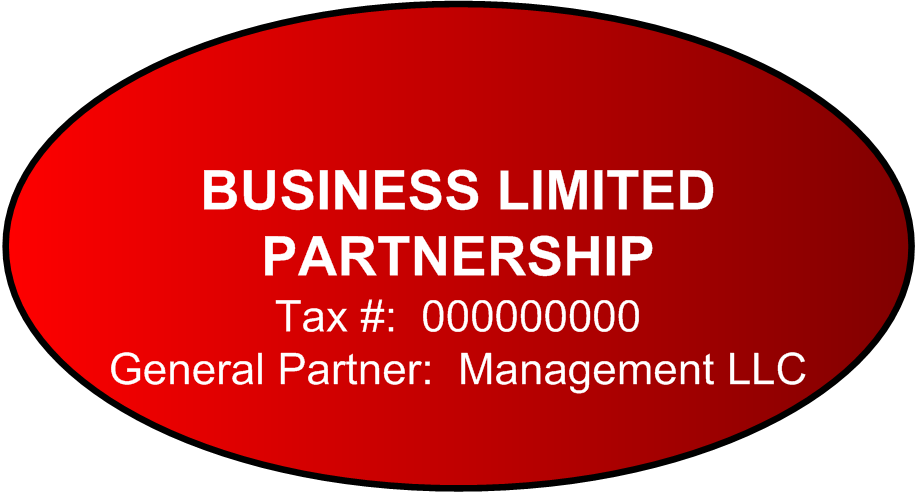
Business Limited Partnership
Business Limited Partnership vs. Family Limited Partnership
For many years the “Family Limited Partnership” has been used an both an estate planning and asset protection tool. There have been a number of catastrophic failures of such entities. Most often, the reason for the failure is the absence of a business purpose or a failure to operate the entity in keeping with that business purpose. Names have power. Calling an entity a “family” limited partnership invites harmful practices. Correctly calling an entity a “business” limited partnership invites healthy and effective practices.
A Business Limited Partnership serves a powerful and important tool for structuring business succession, collaborative investment, consolidating assets for economies of scale, and other vital business functions. When circumstances warrant, a Business Limited Partnership may operate as a “Family Bank” and serve as a parent entity to own other assets and subsidiary structures.
Partnerships in general, and limited partnerships in particular, have specific tax reporting requirements. The IRS publishes rules on family and business limited partnerships. With rare exceptions, a Limited Partnership should have complete documentation for the it to operate, function, and carry out its intended business purposes, an example of which is listed here.
A limited partnership has two kinds of partners: General Partners which, by law and by contract, have control and liability, and Limited Partners which, by law and by contract, have equity but no control and no liability beyond the initial contribution for the activities of the partnership.
Who (or what) should be the partners?
The Worst Kind of Partners
One of the hazards of the “family” title vs. Business Limited Partnership is the practice of making natural person family members partners. This creates multiple problems for some very simple reasons: natural persons die, get married, get divorced, become incapacitated, get sued, may or may not cooperate, have their own agendas and expectations, and too often develop a sense of entitlement. Also, natural persons do not enter or leave this world at the same time or in chronological order. This can result in dramatically disproportionate interests among family members over time.
All of these problems are avoided if the Partners are Trusts or other entities instead of natural persons. Trusts don’t die, get married, get divorced, become incapacitated, have a separate agenda, or a sense of entitlement. In fairness, they can be sued. But the risk of that can be managed and dramatically reduced with appropriate planning. The most likely plaintiffs are the beneficiaries of the Trusts, and litigation with them can be completely eliminated.
Natural persons should simply not be partners, ever. If there are sufficient reasons for form a limited partnership, there are also more than enough reasons to have such partnership interest held by a Trust. Such Trusts may be revocable or irrevocable. Using a combination of revocable vs. irrevocable Trusts can determine who ultimately has control.
Because the General Partner has unlimited liability for the limited partnership, there is no rational reason to name a natural person as General Partner. More often than not, the General Partner can and should be an entity such as the Family Office or Management Company such as an LLC taxed as a corporation.
Business Purposes
Of course, to qualify as a “business” of any kind, the limited partnership must have one or more business purposes, and must in fact function as a business. Examples of such business purposes may include:
- Farming and other operating businesses.
- Ownership and management of rental or commercial properties
- Ownership of other investment assets
- Fractionalized ownership among different people which may include multiple generations of a family
- Consolidation of multiple closely held businesses or properties under a single umbrella
- Diversification of ownership and investment activities
- To function as a discrete business entity for a particular business activity or operation
- To allow the General Partner to have responsibility for and control over partnership assets
- Tax planning to channel income to tax favored persons or to keep income and appreciation out of taxable estate at death
- Consolidate Investment and Business Interests
- Economies of scale not available to smaller or isolated business or investment activities
- To operate in conjunction with other planning entities and structures
- Succession and estate planning including gifting with valuation discounts, sales to defective trusts, transfer of control to next generation, and similar strategies
Who Needs a Business Limited Partnership?
Clearly, a business limited partnership is not for everyone. These are the primary triggers that may make a business limited partnership an attractive option:
- A “large” estate (the meaning of “large” changes from time to time and from person to person.)
- Complex business or property holdings
- Family or business succession issues
- Risk management and asset protection
- An alternative to off-shore planning and/or to so-called asset protection trusts
The costs of a business limited partnership may outweigh the benefits for many including:
- If you value simplicity more than protection
- Small or very simple estates or business holdings
- If you do not have or cannot come up with a genuine business purpose
- If you are unwilling to live with and follow applicable accounting and business practices and file the requisite tax returns.
Durfee Law Group assists clients throughout the country in designing, establishing, and getting the most from business limited partnerships.

